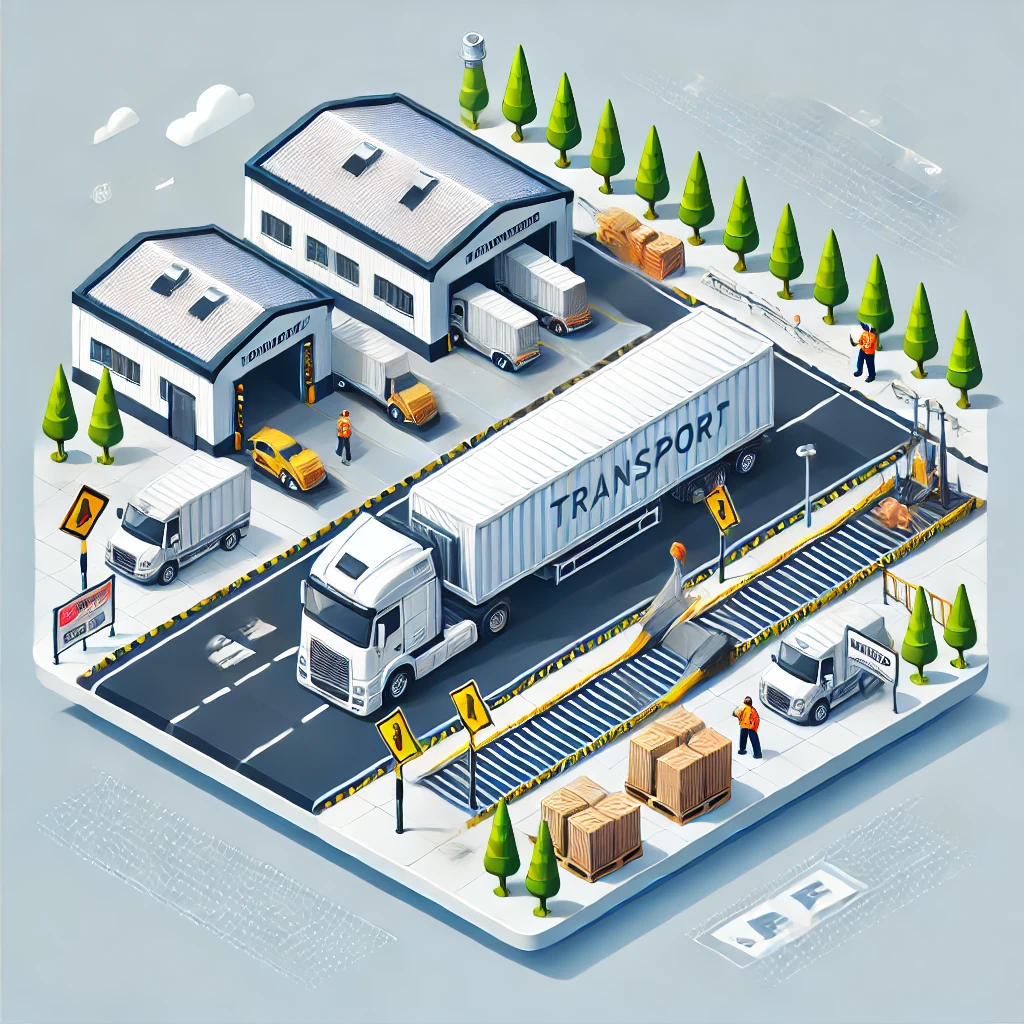
Using Dump Trailers for Safe and Quick Unloading
Effective hauling practices are vital in any industry reliant on moving heavy loads, such as construction, agriculture, or waste management. Ensuring that the transport of materials and the safety of all involved are prioritized can hugely impact operational efficiency. Utilizing specialized equipment like dump trailers can greatly enhance the safety and speed of unloading processes. Below, we dive into the top 10 tips for safe hauling and transport operations.
Inspect Your Equipment Regularly
A proactive approach to equipment maintenance is crucial. Before setting out, examine every aspect of your towing vehicle and trailer, including specialized options like dump trailers, often used for hauling heavy materials and debris. Tires should be checked for adequate pressure and tread wear, as under-inflation can reduce fuel efficiency and lead to overloading issues. The braking system requires particular attention; ensure it’s responsive and free of leaks in the lines. Lights, reflectors, and signals are vital for visibility, especially during night-time or adverse weather conditions. Regular inspections can prevent unforeseen issues from becoming major roadblocks.
Distribute Load Evenly
Proper weight distribution is more than just a safety measure—it’s a fundamental rule of load management. An evenly distributed load minimizes the risk of trailer sway, which can lead to dangerous fishtailing. The center of gravity should be kept as low as possible, with heavier items placed centrally to avoid stress on the axles and maximize control. Conducting a pre-trip balance check can help identify discrepancies, allowing for adjustments before transit. This practice not only enhances stability but also extends the longevity of your towing equipment.
Secure the Load Properly
Reliable load security prevents cargo from shifting during transit, which is crucial for maintaining balance and ensuring safety. Employ high-quality straps and tie-downs to hold loads firmly. These restraints should be checked periodically, especially after sharp turns or stops, to guarantee their integrity. Using tarps can also help protect the load from external elements, reducing the risk of material damage or loss. This becomes particularly important when transporting loose materials like gravel or sand, which could be hazardous if blown out of the trailer.
Know Your Weight Limits
Adhering to weight limits specified in your trailer’s GVWR prevents mechanical failures and legal issues. Overloading can compromise braking systems, lead to tire blowouts, and weaken structural integrity over time. Calculating the cumulative weight of the cargo, including the trailer itself, is essential to ensure it remains within the safe operating limits. Many jurisdictions impose strict penalties for violations, so understanding and complying with these restrictions protects your equipment and business interests.
Adjust Driving Techniques
Driving with a loaded trailer requires heightened awareness and modified techniques. Maintaining a greater distance from the vehicle ahead allows for safe stopping, as increased weight affects braking distance. Special caution should be taken when navigating curves or making lane changes; gradual motions help keep the trailer stable. When driving downhill, use lower gears to manage speed without over-relying on brakes. These adjustments contribute to a smoother transport experience and mitigate the risk of accidents.
Utilize Safety Technology
The integration of technology can significantly bolster safety in hauling operations. Modern vehicles often feature advanced safety aids like trailer sway control systems and backup cameras. These innovations assist in maintaining stability and provide clearer visibility when reversing or hitching a trailer. By leveraging these technologies, operators can execute more precise maneuvers, ultimately increasing transport reliability and safety.
Plan Your Route
A well-thought-out route minimizes exposure to potential hazards and complexities. Consider road conditions, traffic density, and available rest stops. Use GPS navigation systems that provide real-time updates on traffic situations and road changes to optimize your journey. Planning also involves selecting rest stops that accommodate your trailer’s dimensions and weight, ensuring compliance with parking regulations and reducing travel stress.
Use Dump Trailers for Efficient Unloading
Dump trailers are engineered for quick unloading, thanks to their built-in hydraulic systems, allowing a rapid offloading process without manual intervention. This significantly reduces unloading time and minimizes the physical strain on operators, allowing for a seamless transition from loading to unloading. Additionally, their versatile design means dump trailers can easily handle a variety of materials, from aggregate to recyclables, making them a smart choice for improving operational efficiency and reducing turnaround times.
Ensure Proper Hitching
The hitch is a vital connection point between your tow vehicle and trailer. Ensuring it is correctly secured prevents detachment during transit, a potentially catastrophic event. Verify that the hitch is locked, safety chains are crossed under the tongue, and the electrical connections are intact. Routine lubrication of the hitch mechanism can also prevent rust and ensure fluid movement. Regular checks can avert failures and maintain a secure linkage, which is vital for safe travel.
Educate and Train Operators
Knowledge is power, especially when operating heavy machinery. Comprehensive training ensures operators understand how to handle routine and emergencies effectively. Training should include practical modules on load management, equipment maintenance, and safety technologies. Encourage operators to stay updated with the latest regulatory changes and technological advancements. Ongoing education enhances individual capabilities and fosters a culture of safety and accountability within the team.
Safe hauling and transport hinge on meticulous organization and strict adherence to best practices. By incorporating these top tips—from regular equipment inspections to optimizing routes and utilizing dump trailers to speed unloading—you can enhance the safety and efficiency of your operations. This commitment to safety elevates performance and underlines the importance of protecting human and material assets.
